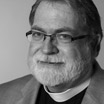“Shared Conversations” and déjà vu
I have just returned from a two-week holiday and a graduation in the UK, mindful of the Church of England’s General Synod. While there, I disciplined myself to avoid comments and to simply enjoy my time away with my wife and friends. But, towards the end, my attention was drawn to an article written by the Rev. Dr. Ian Paul, reporting as a participant in the “Shared Conversations” on human sexuality, as part of the reception of the Pilling Report (which seems to recommend to the Church of England, in the end, “pastoral accommodation” in the form of the blessing of same sex civil partnerships).
For those of you who may not have heard of the Rev. Dr. Paul, he was from 2005-2013 Dean of Studies and lecturer in New Testament and Practical Theology at St. John’s College Nottingham (an historically evangelical college for those training for ministry in the Church of England). He did his PhD on Paul Ricouer’s hermeneutic of metaphor and the interpretation of the Book of Revelation. He has been a member of the British New Testament Society since 1991 and has convened its Revelation seminar group since 2004. He is also a founding member of the Grove Biblical series editorial group (since 1994) and served as its Chair/Managing Editor from 1994-2004. You can find his full CV here and his blog, Psephizo, here.
I would like to quote at length from Dr. Paul’s July 13 post because it seems to me that he has addressed the issue of paramount importance in all of these conversations—indeed, in the life of our troubled Anglican Communion today. That issue is nothing less than the clarity and authority of the Holy Scriptures for our lives today. While he had some positive things to say about the process of the conversations and some of the people he engaged, it is clear from his comments that the Bible is being seriously mishandled in the process:
“The worst plenary session of all was the first one, and it was very telling that what many view as the most important theological question—what does Scripture say and how should we make sense of it—was the one most badly misjudged. I don’t think it is an exaggeration to describe it as an absolute travesty of process. There were three speakers, one of whom supports the current teaching position of the Church, the other two arguing for change. The first person stayed within the brief, and spoke for seven to eight minutes; the second appeared to ignore the brief and spoke for 17 minutes, without intervention from the chair; the third spoke for 12 minutes. So we were offered 8 minutes on the Church’s current and historic teaching, and 29 minutes on why this was wrong. And the dynamic of putting the ‘orthodox’ position first meant that, as in all such debates, the advantage is handed to the others. Added to that, the first speaker, whilst eminently qualified in other ways, was not a biblical scholar, whilst the next one advocating change was. There was no voice from a Catholic perspective, engaging with the reception of Scripture within the tradition, and the ‘orthodox’ view was repeatedly labelled not as the Church’s teaching, but as ‘conservative’.”
An absolute travesty of process—déjà vu: Biblical clarity and authority is presented as one option among many. It is set up as a conservative minority view, a “straw man” to be demolished by “experts.” There is not a fair allocation of time and speakers. There is no opportunity for serious engagement back and forth, or for rebuttal. Those in charge of the institutional process do not observe due process and fair play. Often, the most qualified speakers for the Church’s historic teaching on the clarity and authority of the Scriptures are not chosen to speak. As Dr. Paul goes on to observe:
“It is hardly a coincidence that (in the forthcoming Church Times article) all those pressing for a change in the Church’s teaching thought that it was very fair, and that we had heard the biblical arguments. It wasn’t, and we didn’t. After two years of planning, the ‘orthodox’ speakers were only finalised in the previous week.”
Indeed, one wonders why Dr. Paul, or Bishop NT Wright, or any other number of qualified orthodox New Testament theologians and scholars were not chosen to speak after so much preparation for these conversations.
As one who participated in some such “conversations” on human sexuality in The Episcopal Church (TEC) in from 1985-2005, I recognize these tactics and processes very well. This is exactly why so many of us left TEC and formed the Anglican Church in North America.
Dr. Paul goes on to make a serious critique of the two presentations that sought to cast doubt on the clarity of the Scriptures and thereby to justify a change in the Church’s historic teaching:
“Even worse than that was the content of the second and third presentations, and the way the format prevented proper interrogation of the claims made. It was claimed that the givenness of sexual orientation is the settled view of Western culture, when it is contested both within and outside the church, is not supported by social-scientific research, and has been abandoned as a basis of argument in secular LGBT+ debate. It was claimed that all the texts in the NT referring to same-sex activity are in the context of porneia, ‘bad sex’, which was either commercial or abusive—which is a basic factual error. It was claimed that St Paul ‘could not have known of stable same-sex relations’ which is not supported by the historical facts. And it was claimed that same-sex relationships were the ‘eschatological fulfilment of Christian marriage’ since they involved loving commitment without procreation. It was not even acknowledged that many in the chamber would find that a deeply offensive assertion, quite apart from its implausibility. But the format of the presentation precluded proper exploration of these authoritative claims. It felt to me like a serious power play, and I felt I had been subject to an abuse of expert power.”
The abuse of expert power: presenting revised positions as established facts when they are NOT in order to cast doubt on the clarity of Scripture—déjà vu: I have little else to add to Dr. Paul’s observations than my own experience which began long before seminary training, where it was not permitted to question such dubious claims within the institutionally approved processes of TEC. For serious, balanced, Biblical scholarship I had to go outside the mandated readings and scholars presented by TEC. In seminary classes, and in later councils of the church, I was actively discouraged, overlooked, and marginalised by TEC leaders who did not permit a proper and intelligent interrogation of their claims. My experience is only the tip of the iceberg—it is an experience shared by countless laity, clergy and bishops who found no recourse than to form the ACNA in order to rightly handle the word of God and maintain Biblical clarity and authority.
Finally, Dr. Paul observes the not-so-subtle pressure in these conversations to abandon the clarity and authority of the Scriptures for reasons other than a proper examination of the Biblical texts themselves:
“All this was made worse when one of the key organisers, having picked up some negative feedback on this, stood up near the end of the day to tell us (in essence) that if you thought this first session was unbalanced, then you were wrong. It confirmed a basic lack of understanding of the concerns raised by those responsible for the process—concerns not of some extreme group at one end of the spectrum, but concerns of those who simply believe in the Church’s current teaching position…
This was exacerbated for me by the facilitation in groups. Several times we were reprimanded for actually trying to discuss the issues involved, and understand what each other believed and why, and what the differences were. We were not supposed to be discussing this, but only talking about how we might talk about it. When questions were raised about the process itself, this was clearly out of bounds, and our facilitator responded by using emotional language—’I am disappointed…I am sad.’”
Painting the concerns of those who stand for Biblical clarity and authority as extreme, using emotional language, expressing disappointment in them and doubling down—déjà vu: When all else fails, when leaders in the Church reaffirm the clarity and authority of the Scriptures, when they question proposed changes in the Church’s teaching and the facts experts are marshalling to justify those changes, genuine conversation simply fails. It reverts instead to manipulation, labelling and expressions of disappointment by those who are advocating the changes and who will not in good faith engage the clarity of the Scriptures and their authority. “Good disagreement” of any kind is impossible in the face of such ad hominem responses, as we discovered in TEC.
Although he is in favour of good conversations with Biblical integrity, Dr. Paul concludes with the fundamental flaw in the “Shared conversations” in the Church of England:
“The fundamental problem here was the underlying approach—that there are no right answers, and no given positions, and so what is needed is a juxtaposition of different views so that mutual respect can emerge. This might be just right for a position of political conflict, where there is no ‘objective’ position which can act as a reference point. But how can this be right in a context where the Church itself already has a committed position, one that has the weight of history behind it, and a position which, in theory, all the clergy and the bishops have themselves signed up to believing, supporting and teaching….”
Anglicans rejoice that we have an objective reference point—The Bible, the Holy Scriptures, their clarity and their authority in all matters of faith and practice. The Scriptures testify from beginning to end that our identity is in Jesus Christ, who died for our sins—and not only for ours, but for the sins of all—and who rose from the dead as Lord and Saviour of all peoples, in all times, places and cultures. Our identity lies in Christ and in Him alone. We had the Reformation for this very reason. And it was for this very reason that Paul wrote to Timothy “Do your best to present yourself to God as one approved, a workman who does not need to be ashamed and who correctly handles the word of truth.” (2 Timothy 2:15 NIV)
Please pray for those in the Church of England who are standing faithfully for the clarity and the authority of the Bible. As my friends there have said, it is a desperate situation. Pray that we here may be an encouragement to them in word, deed and prayer.
The Rev. Canon Phil Ashey is President & CEO of the American Anglican Council.



